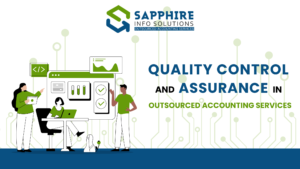Introduction
Effective communication is the cornerstone of a successful partnership with your outsourced accounting team. For accounting firms in the UK, fostering clear and consistent communication with outsourced partners is crucial to ensuring accuracy, efficiency, and client satisfaction. This guide explores strategies to enhance communication with your outsourced accounting team, helping you build a productive and collaborative working relationship.
The Importance of Effective Communication
Effective communication with your outsourced accounting team offers several benefits:
- Clarity and Accuracy: Ensures that all tasks are completed accurately and according to your firm’s standards.
- Efficiency: Streamlines workflows and reduces the time spent on clarifying instructions or correcting errors.
- Trust and Transparency: Builds trust between your firm and the outsourcing partner, leading to a more transparent and reliable partnership.
- Problem Resolution: Facilitates quick resolution of issues, minimizing disruptions to your operations.
- Client Satisfaction: Enhances the quality of service delivered to your clients, ensuring their needs are met promptly and effectively.
Strategies for Fostering Effective Communication
1. Establish Clear Communication Channels
Setting up clear communication channels is the first step towards effective communication. Consider the following:
- Primary Communication Tools: Choose reliable communication tools such as email, video conferencing, instant messaging, and project management software. Tools like Microsoft Teams, Zoom, Slack, and Asana can facilitate seamless communication.
- Defined Points of Contact: Identify key contacts on both sides (your firm and the outsourcing partner) who will manage the communication. Having designated points of contact helps streamline the communication process and ensures accountability.
2. Set Clear Expectations and Guidelines
Clearly defining expectations and guidelines helps avoid misunderstandings and ensures everyone is on the same page. Key areas to address include:
- Scope of Work: Provide detailed descriptions of tasks and responsibilities. Include timelines, deliverables, and quality standards.
- Communication Protocols: Establish protocols for how and when to communicate. For instance, specify preferred communication tools for different types of interactions (e.g., email for formal updates, instant messaging for quick queries).
- Response Times: Set expectations for response times to ensure timely communication. For example, agree on a 24-hour response time for emails and immediate responses for urgent issues via instant messaging.
3. Regular Check-Ins and Meetings
Regular check-ins and meetings are essential to maintain alignment and address any issues promptly. Implement the following:
- Weekly Updates: Schedule weekly update meetings to review progress, discuss upcoming tasks, and address any concerns. These can be held via video conferencing to foster a more personal connection.
- Monthly Reviews: Conduct monthly performance reviews to evaluate the overall progress and identify areas for improvement.
- Ad-Hoc Meetings: Allow for ad-hoc meetings as needed to discuss urgent matters or complex issues that require immediate attention.
4. Provide Detailed and Constructive Feedback
Feedback is crucial for continuous improvement and effective collaboration. Follow these guidelines for providing feedback:
- Be Specific: Provide specific examples when giving feedback to help the outsourcing team understand the context and make necessary adjustments.
- Be Constructive: Frame feedback in a constructive manner, focusing on how improvements can be made rather than just highlighting mistakes.
- Encourage Two-Way Feedback: Encourage the outsourcing team to provide feedback on your processes and communication as well. This can help identify potential areas for improvement and foster a more collaborative relationship.
5. Foster a Collaborative Culture
Creating a collaborative culture between your firm and the outsourcing partner can significantly enhance communication. Consider the following strategies:
- Build Relationships: Invest time in building personal relationships with the outsourced team members. This can be done through regular video calls, team-building activities, or even in-person visits if feasible.
- Encourage Open Communication: Promote an open-door policy where team members feel comfortable sharing ideas, asking questions, and raising concerns.
- Acknowledge and Appreciate: Recognize and appreciate the efforts of the outsourced team. Acknowledgment can go a long way in building a positive and motivated team.
Overcoming Common Communication Challenges
Despite best efforts, communication challenges may still arise. Here’s how to overcome some common issues:
- Language Barriers: If there are language differences, use clear and simple language, avoid jargon, and consider language training or using translation tools if necessary.
- Time Zone Differences: Address time zone differences by scheduling meetings at mutually convenient times and using asynchronous communication tools where possible.
- Cultural Differences: Be aware of cultural differences that may impact communication styles and work preferences. Show respect and understanding for these differences to build a more harmonious working relationship.
Case Study: Effective Communication in Action
Consider the example of a UK-based accounting firm that successfully improved communication with their outsourced team through the following steps:
- Implementation of Weekly Video Calls: Regular video calls helped build rapport and allowed for real-time discussion of tasks and issues.
- Use of Collaborative Tools: The firm adopted Asana for project management, enabling clear tracking of tasks and deadlines.
- Detailed Onboarding Process: A thorough onboarding process ensured that the outsourcing team understood the firm’s expectations and processes from the outset.
- Continuous Feedback Loop: Regular feedback sessions helped identify and resolve issues promptly, leading to improved accuracy and efficiency.
Conclusion
Fostering effective communication with your outsourced accounting team is essential for a successful and productive partnership. By establishing clear communication channels, setting expectations, using collaborative tools, providing constructive feedback, and building a collaborative culture, accounting firms in the UK can enhance their outsourcing relationships and deliver high-quality services to their clients. For accounting firms looking to improve their outsourcing communication strategies, partnering with a reputable provider like Sapphire Info Solutions can offer the expertise and support needed to achieve these goals. Contact Sapphire Info Solutions today to learn more about their comprehensive outsourced accounting services and how they can help your firm enhance communication and collaboration.














